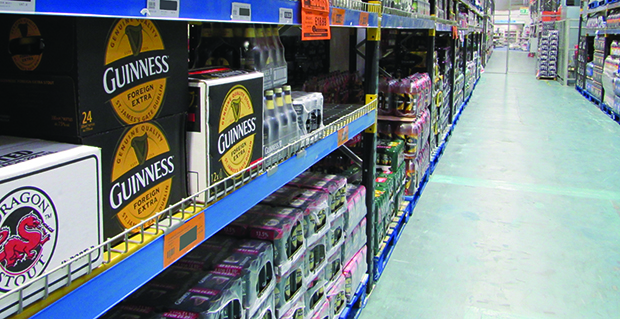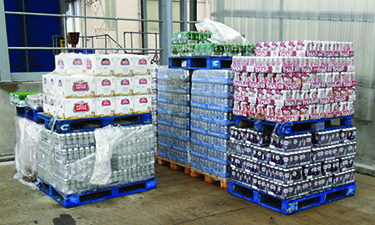Your ultimate guide to: The Alcohol Wholesaler Registration Scheme
To help tackle alcohol duty fraud, which costs the taxpayer approximately £1.3 billion per annum, HM Revenue and Customs (HMRC) will be introducing a registration scheme for alcohol wholesalers in January.
Forming part of the Finance Act 2015, the legislation is designed to reduce unfair competition and restrict the involvement of criminals penetrating the supply chain. Cash & carries and distributors will be vetted under ‘fit and proper’ criteria, with HMRC reserving the right to ban non-compliant businesses from operating in the beer, wine and spirits market.

Who will be affected by the scheme?
Businesses that trade wholesale, at or after the point excise duty is payable, need to register. An exemption is made for licensed retailers that make only incidental wholesale sales. HMRC estimate that the initiative could cut the alcohol tax gap by 20%.
How soon does AWRS come into effect?
Originally, the scheme was due to go live at the start of October. Technical issues have since postponed the start date to 1 January. As a result, all alcohol wholesalers must apply online to HMRC via GOV.UK to register for AWRS before 31 March 2016. Those who do not apply within this three month window will be unable to legitimately trade in the alcohol sector. New wholesalers looking to trade in alcohol from 1 April 2016 onwards must register at least 45 working days before they intend to start operating.
How will your application be assessed?
From 1 January 2016 to 31 March 2017, HMRC will rigorously scrutinise around 20,000 applications and carry out site visits to determine which businesses meet its ‘fit and proper’ criteria. Companies that fail to comply with these standards will be informed that they must cease trading alcohol. There will be a right of appeal.
How do you know which businesses are approved by HMRC?
An online database will be provided by HMRC for wholesalers and trade buyers to verify all approved businesses. There will also be an obligation for wholesalers to display a unique reference number on all invoices from 1 April 2017.
What are the key conditions to meet HMRC‘s ‘fit and proper‘ criteria?
– No evidence of illicit trading.
– Application is accurate and complete, with no attempts to deceive.
– The persons involved in the business have no criminal convictions relating to acts of dishonesty.
– No history of staff involvement in any significant revenue fraud.
– No connections with non-compliant or fraudulent companies.
– No outstanding, unmanaged HMRC debts or a history of poor payment.
– Satisfactory due-diligence measures in place to protect from trading in illicit supply chains.
– No previous attempts to avoid registration and trade unauthorised.
– Sufficient evidence of commercial viability and/or credibility.
– No persistent or negligent failures to comply with record-keeping.
 How serious are the penalties?
How serious are the penalties?
In addition to existing penalties for duty evasion, a new civil penalty of up to £10,000 will be imposed on wholesalers trading unauthorised, as well as trade buyers caught purchasing alcohol from unauthorised businesses. HMRC will also prosecute the most serious offenders, which could result in fines or even imprisonment.
What can you do to prepare?
Wholesalers are advised to review their processes to make sure they are only sourcing legitimate alcohol. Applicants will be assessed on standards of record-keeping, day-to-day checks and safeguarding procedures to avoid exposure to illicit trade.
What they say…
“HMRC has created a scheme which will be effective without being too complicated, time-consuming or expensive to comply with. Hopefully the criminals won’t be trading by the time the registration database goes live in April 2017. The crucial thing to understand right now is that if you don‘t apply for registration by the 31st of March, neither will you” – James Bielby, FWD chief executive.





